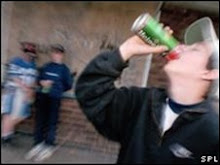Various ideologies impact the development of youth social policy. It is imperative to consider these ideologies that underlie youth social policy as they directly impact the lived experiences of individual youth. Very simply, the idea that youth require a unique set of policies reflects the belief that youth and adulthood are completely separate entities. This suggests that youth have so little in common with adults that they must be addressed in a separate manner.
White and Wyn (1998) describe this separation as a deterministic belief meaning that it is seen as a universal truth in societies such as Canada. It is built on the biological fact that youth have not yet reached the highest level of development and maturation. All behaviours are attributed to a lack of maturation which reduces youth to being primarily characterized by their biology (Gordon, 2007). This places youth in a place of inferiority in which there is a significant lack of agency and adults are considered to hold superior power and decision-making abilities. A direct result of this view is that adults are in charge of the creation of policies surrounding youth matters such as the age at which they may begin purchasing alcohol. This policy highlights this power-imbalance in that every youth is strictly suspended from purchasing a substance that is available to all adults.
Another principle at the root of this policy deals with social responsibility. The idea that adults have a duty to protect the young is also a belief that is very much embedded in Canadian society. Limiting the age at which alcohol can be obtained can be seen as a way in which adults are protecting youth from engaging in possibly harmful behaviours. This is further enforced by the punishment that is to an adult who sells alcohol to a youth who is under the legal age. Adults who sell alcohol to underage youth can be legally convicted which shows the seriousness to which this duty is taken (Chamberlain, 2001) and reinforces the view of youth as the responsibility of adults.
It is also imperative to acknowledge the cultural-specificity of this policy. Because the drinking age in Ontario is 19 (and close to this age in other provinces), this shows individuals are still considered youth at this age which is specific to this culture. In addition, there is certain set of beliefs concerning youth who do choose to drink although they are not yet the legal age. In Canada, these youth are considered deviant or troubled. These labels can be seen as a means of punishment for youth who do not follow this policy. Reflecting on the previously mentioned ideologies reveals that there are many beliefs that underlie the sale of alcohol to youth. Many of these ideologies appear to be deeply embedded in the dominant discourses of our society.
Sunday, October 5, 2008
Subscribe to:
Post Comments (Atom)


No comments:
Post a Comment